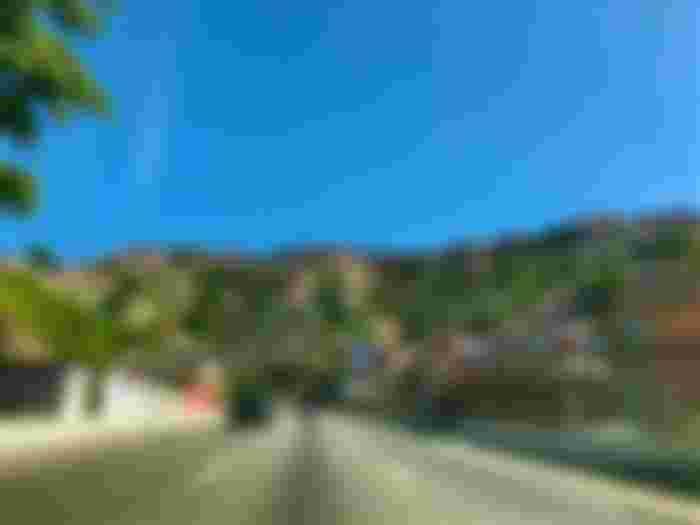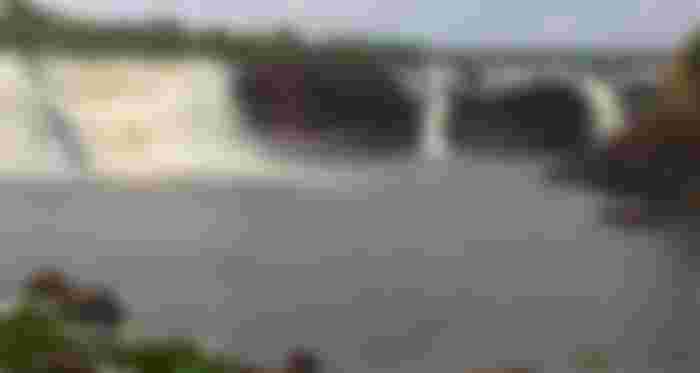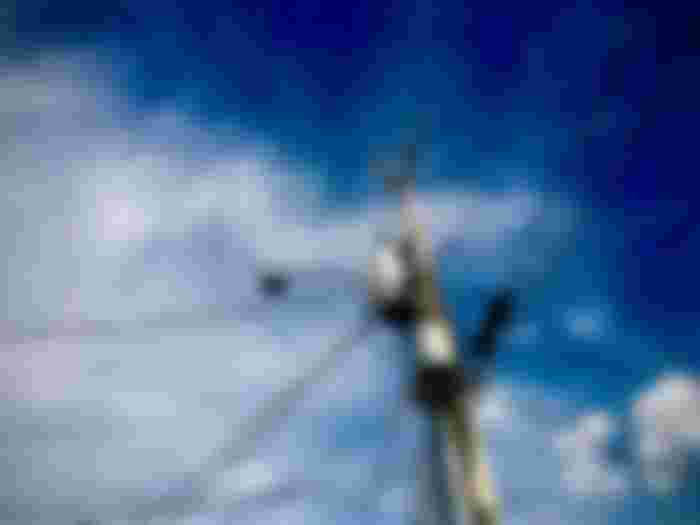Hello, my dear Read.cash fellows.
Today, I've been quite reflective. Thinking about an article by @onlymythoughts that I read yesterday. The post is about social control in China. And the system of "The Social Credit Score" in which citizens gain points for their behavior and compliance with the rules imposed by the government. I encourage you to read the article, Are you a good citizen.
Every time I read or see things of this type, I cannot help looking for analogies with the situation in Venezuela. So I have not stopped thinking about this. And wondering how much would be my social credit score if we had something like this in Venezuela.
I'm not going to write an analysis of totalitarianism and social control. I only would like to point out some facts from the point of view of a citizen who lives in a country with Social Control. And answer me, the final question of @onlymythoughts in his article, do you think is it best just to be a 'good' citizen and comply?

Social control in "socialist" Venezuela
The forms of social control in my country are quite extensive. But I'll mention only a few specific mechanisms used by the government in the last years.
Traditional media as TV, newspaper, radio are owned by the government, and the few ones that aren't, all have to keep their editorial lines very conservative for fear of being sanctioned.
There is a civil registration system called Patria that has nothing to do with the personal identification system. Through this system, the government gives citizens money aids, if they can be called that, since the amounts are usually quite miserable. It's a mechanism for controlling and buying loyalties in the population.
A more coercive element than Patria is the Carnet de la Patria. An identification document different from the DNI. And more similar to the card of the party in power. Some of the government grants and programs are only for those who have the Carnet de la Patria.
From my personal point of view, about traditional media. I can't remember when was the last time I saw a local TV channel. I listen to the radio very little. And regarding written press or digital channels. Twitter, foreign media, and some independent digital media are where I usually read the news. So my score in this regard must not be my good.
On the other hand, I don't have a Carnet de la Patria. And I had avoided by all means registering in the Patria system. But recently, and against my principles, I had to give in and sign up to be eligible for the national vaccination program for Covid. The government has decided to address the vaccination program through this mechanism and thus exercise more control over the population. And although I'm still waiting for my appointment for the vaccination, I had no choice but to register because I value my health and that of my family more.

Other forms of social control
Other less obvious forms of social control in the country are the scarcity and the conditioning of the population that has become used to living according to the lack or rationing of basic services. Some examples of this are:
Water. All over the world, water is a precious commodity. But it is one of those things that you don't worry about when you live in a developed country. Here the water is appreciated every day. The lack of water service in the inland country is usually worse than in Caracas. But even here, some sectors don't receive water during the days. And believe me, this doesn't distinguish social classes. There are luxury buildings that depend on the supply of tanker trucks to make up for the lack of service. Some of us are fortunate, and we have been able to install small tanks in our homes to supply us in times of rationing. But the schedules and the conditioning of life to when we will have water or not, It's there for everyone.
Electricity. I've already written about the blackout that Venezuela suffered in 2019 due to the deplorable state of the country's electrical system. So power outages here are frequent. Problems in the service are worse outside Caracas. In some places, there are scheduled rations and not the mere failure of the service.
One of the places that have been hit the hardest by lack of energy. It is the second-largest city in the country, Maracaibo. And it's the city where my in-laws live. In Maracaibo, daily temperatures fluctuate between 32°C and 34°C and a thermal sensation of a few degrees more. But for years, its inhabitants have been subjected to power rationing. My husband recently visited it. And told me that when the electricity failed. He thought he had reached hell because of the sweltering heat. Many people have left the city to other places abroad or within the country. My husband told me that some parts of the city look like a ghost towns. However, an urban legend runs that some people related to the government have large BTC mining farms. And it's said, this could be one of the reasons why the service is so precarious in the city.
Fuel. Venezuela has a huge oil reserve. Twenty years ago, the oil industry was first class. Today, the local oil industry is a wreck. We aren't capable of producing the fuel we need for the country to be active. For years, the government has imported gasoline to supply part of the demand. And the fuel shortage is a constant of the last years.
Once again, those who live outside of Caracas are more affected. And even more so, those who live in cities or border states. Where the shortage is worse by the smuggling of fuel. It's difficult to freely move within the country because of fuel shortages. You don't know when fuel scarcity may hit you on the road. I haven't done a long road trip here in a long time. And I used to love them, but I don't like the idea of traveling with a couple of plastic gasoline containers in the trunk of the car if I can get them.
But scarcity isn't the only control mechanism regarding fuel. Now, so is the price of it. I've already mentioned in other articles that fuel in Venezuela was almost free until a year ago. Since May of last year, and after an acute fuel shortage that affected the entire country in the first months of the pandemic, the government raised the price of gasoline. And now, we have two prices. 0,025 US$/liter, sell is regulated and controlled by the government. 0,5 U$/liter which is freely selling.
Of course, to purchase gasoline regulated by the government, you have to be registered in the Patria system. And have the vehicle registered in the system too. But also, not all service stations sell this gasoline. There are really few, and in them, the lines are up to one day. The fuel is the same available everywhere, it's just the price that changes. And people who cannot afford to buy nonregulated fuel, often spend the night in the gas station line. And is this not a clear element of social control?

Like these examples, there are many others. Perhaps these are the ones that we face the most in our day to day. But putting the population in a constant struggle to satisfy their most basic needs, believe me, it's the most effective means of social control there is. People are so into solving their day to day. That little time is left to think about protesting for their rights or to fight for a change. And even less when the wounds of recent attempts at change are still fresh and bleeding.
I won't mention on purpose the many attempts of financial control over the population. And why cryptocurrencies have such a fertile field in Venezuela. Because that is the subject for another article.
Looking at it from the point of view of one who evaluates the good citizen under this control lens. I'm a very bad citizen, and I take pride in it.
I've worked very hard to get my family through the crisis. And I try to make my life the most normal in the midst of the abnormality and chaos around me. But I'm still empathic with those suffering around me, and I help those who need it if it is in my hands.
But today, I'm clear that change isn't possible only with social struggle, which until now has only left a trail of victims and has opened new opportunities for the government to implement more controls.
My priority is my well-being and that of my beloved ones. I consider myself a citizen of the world and not of a country that lives with social control. And if one day I have the opportunity, I will probably go somewhere else. Maybe when my son does. Because it's clear that today Venezuela isn't the land of opportunities that it once was. And although I consider myself very optimistic in general, I'm not in terms of the direction of things around here. So for the moment, I fight in my little personal battles, I try to keep politics out of my house, and I look for a way to live and not survive as many do around here.
To all my dear readers and wonderful sponsors, thank you so much!
A special thanks to @Jane, my most recent sponsor. Thanks a lot! It's an honor for me to have your support in my sponsor bar.
All images and writings are my own unless anything different is stated. Copyright CoquiCoin 2021.
Until next time! ;)
August 11, 2021



Reading your article made me strive more to write. I am just starting my journey seeing someone's worthy writing is surely inspiring. In my opinion, compliance is a responsibility each citizen must have.